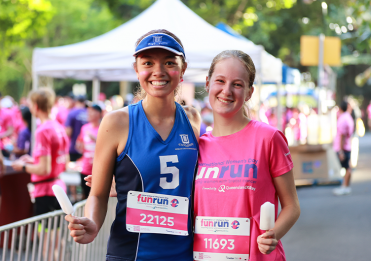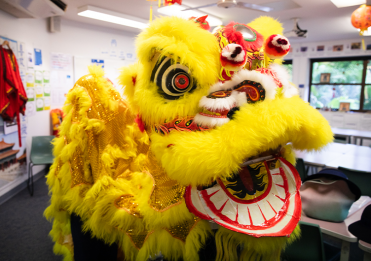Every day, we encounter waste—on our streets, in our workplaces, and at home—and often wish it were someone else’s problem. How many of us have avoided separating the recycling from our household bins or picking up a piece of litter? It’s not surprising that recycling, a more complex form of waste management, poses a significant challenge for many Australians.
Waste management and recycling are more than just necessary evils; they are opportunities for education and personal development. The recycling rate in Australia stands steady at 60 per cent, unchanged over the past two years (Ridley, 2023). We know that it’s crucial not only to improve these rates but also to enrich the educational experiences tied to these efforts. This prompts a key question: what more can we do?
Recent advances in plastic waste treatment have shifted away from traditional, often harmful methods like landfill and incineration, toward more sustainable practices that not only alleviate the environmental burden but also transform waste into valuable resources. Innovative technologies such as pyrolysis and photodegradation not only promise to reduce the environmental footprint of plastic waste but also support a circular economy by turning waste into fuel, new materials, and other useful products (Zhang, et al, 2021).
Deputy Principal (Academic), Dr Bruce Addison (2024), highlights the dual-edged nature of plastic: a boon for convenience but a bane for the environment. This paradox presents a unique educational opportunity. Rather than shying away from challenging subjects like waste management due to their perceived complexity or lack of direct career utility, educators and students alike should embrace them for their potential to inspire and transform. This perspective converges on the need for a deeper, more meaningful engagement with environmental education. We need to spark passion and ignite interest in the students we teach. A real-world application will often be the reason young people come back to problem-solving. When they can see how it applies to life outside the confines of school, we give them the foresight to make changes they believe can have an impact.
In her Reflections on the Australian education system, Dr Rashna Taraporewalla (2024) critiques the current metrics of educational success, such as the ATAR, which often prioritise scoring over genuine interest and passion in learning. This critique is particularly relevant when considering environmental education. Just as Dr Taraporewalla advocates for valuing subjects based on the personal joy and fulfillment they provide, environmental education should be approached similarly. It offers deep, personal engagement with critical issues affecting our planet, fostering a sense of responsibility and connection to the earth that can be profoundly fulfilling.
Educators bear a unique responsibility: to empower students with the knowledge and skills to make sustainable choices. ‘Trash to Treasure’ refers to transforming discarded or unwanted items, often considered trash or waste, into valuable or desirable products. This involves repurposing, upcycling, or creatively reusing materials typically disposed of in landfills (Nallapaneni MK, Hait S, Priya A, Bohra V 2023). Initiatives that Brisbane Girls Grammar School currently support, such as Precious Plastic, play a pivotal role in this educational effort. This program encourages communities to collect plastic lids from used bottles for repurposing. After cleaning, sorting and shredding, these plastics are transformed into usable products. Girls Grammar has actively engaged students in this process, turning them into advocates for sustainability. Their enthusiasm and newfound knowledge have the potential to spark broader community awareness and actions toward environmental sustainability. Overall, Trash to Treasure represents a shift toward embracing sustainability, encouraging resourcefulness, and fostering a culture of various activities that broadly fall under a circular economy (Nallapaneni MK, Hait S, Priya A, Bohra V 2023). If we are to emphasise the transformation of waste into valuable resources, we can assume that we would witness a cultural shift that in turn, would aid in implementing circular economy practices.
Socrates once said, ‘The secret of change is to focus all of your energy not on fighting the old, but on building the new’. This wisdom underscores the importance of proactive engagement in creating sustainable solutions, rather than simply opposing unsustainable practices. The real challenge lies in ‘walking the walk’ and exploring alternative options that focus our collective attention on sustainability.
The recycling landscape in Australia faced a significant shift in 2020 when China ceased accepting foreign recyclables (Richie, 2020). This decision exposed vulnerabilities in our national recycling capabilities, emphasising the need to enhance local processing. While increasing recycling rates is crucial, it is paramount to prevent plastic waste from contaminating our environment in the first place.
As we look ahead, it is imperative that our educational approaches foster not just knowledge, but a lifelong passion for sustainability. This aligns with David Brooks’ concept of ‘eulogy virtues’, which suggests that our education system should aim to cultivate qualities like kindness, wisdom, and a strong sense of justice—virtues that are often echoed in the goals of environmental education (Brooks, 2015).
We must integrate sustainable practices into our lifestyles, recognising that without change there will be no progress. Humans are inherently resistant to abandoning familiar habits, but through education and behavioural changes, we can influence those around us to embrace genuine and lifelong sustainability.
In 2025, the Republic of Korea will host World Environment Day, focusing on a global commitment to end plastic pollution. This event will bring world leaders together to advance their Sustainable Development Goals, reminding us to reflect on our community efforts to preserve ecosystems and biodiversity by reducing plastic waste. My question to you is, what actions will you take today to ensure that we can change our future?
References
Ridley, R. (2023). Australia’s resource recovery rate (recycling, waste reuse, and energy recovery) for 2020-21 was 63%, and the recycling rate was 60%. ACE Hub. Retrieved from ACE Hub
Taraporewalla, R. (2024). Reflections: A matter of wisdom, virtue and skills (not scaling). Head of Department—Ancient History.
Ritchie, M. (2020). 2 years since Asia stopped taking our recycling: Where do we stand? MRA Consulting. Retrieved from MRA Consulting
Addison, B. (2024). Academic integrity: Where to now? Academic Integrity – honesty, fairness, and ethical conduct in academic work.
Brooks, D. (2015). The road to character. Random House.
Zhang, F., Zhao, Y., Wang, D., Yan, M., Zhang, J., Zhang, P., Ding, T., Chen, L., & Chen, C. (2021). Current technologies for plastic waste treatment: A review. Journal of Cleaner Production, 282, https://doi.org/10.1016/j.jclepro.2020.124523
Nallapaneni, M. K., Hait, S., Priya, A., & Bohra, V. (2023). From trash to treasure: Unlocking the power of resource conservation, recycling, and waste management practices. Sustainability, 15(18), 13863. https://doi.org/10.3390/su151813863




